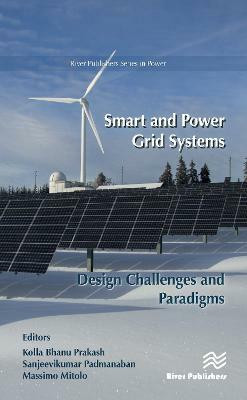Smart and Power Grid Systems - Design Challenges and Paradigms(English, Hardcover, unknown)
Quick Overview
Product Price Comparison
The Smart Grid represents an unprecedented opportunity to move the energy industry into a new era of reliability, availability, and efficiency that will contribute to our economic and environmental health. During the transition period, it will be critical to carry out testing, technology improvements, consumer education, development of standards and regulations, and information sharing between projects to ensure that the benefits we envision from the Smart Grid become a reality. Today, an electricity disruption such as a blackout can have a domino effect-a series of failures that can affect banking, communications, traffic, and security. This is a particular threat in the winter, when homeowners can be left without heat. A smarter grid will add resiliency to our electric power system and make it better prepared to address emergencies such as severe storms, earthquakes, large solar flares, and terrorist attacks. Because of its two-way interactive capacity, the Smart Grid will allow for automatic rerouting when equipment fails or outages occur. This will minimize outages and minimize the effects when they do happen. When a power outage occurs, Smart Grid technologies will detect and isolate the outages, containing them before they become large-scale blackouts. These new technologies will also help ensure that electricity recovery resumes quickly and strategically after an emergency-routing electricity to emergency services first, for example. In addition, the Smart Grid will take greater advantage of customer-owned power generators to produce power when it is not available from utilities. By combining these "distributed generation" resources, a community could keep its health center, police department, traffic lights, phone system, and grocery stores operating during emergencies. In addition, the Smart Grid is a way to address an aging energy infrastructure that needs to be upgraded or replaced. This book shows that Smart Grids can address energy efficiency, bring increased awareness to consumers about the connection between electricity use and the environment, and bring increased national security to our energy system-drawing on greater amounts of home-grown electricity that is more resistant to natural disasters and attack.


